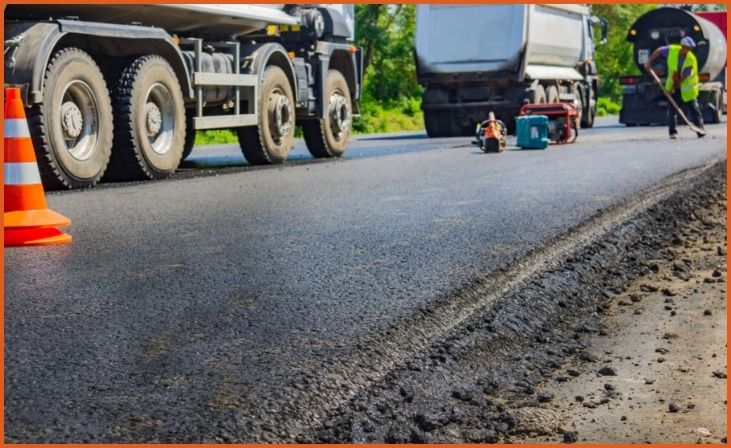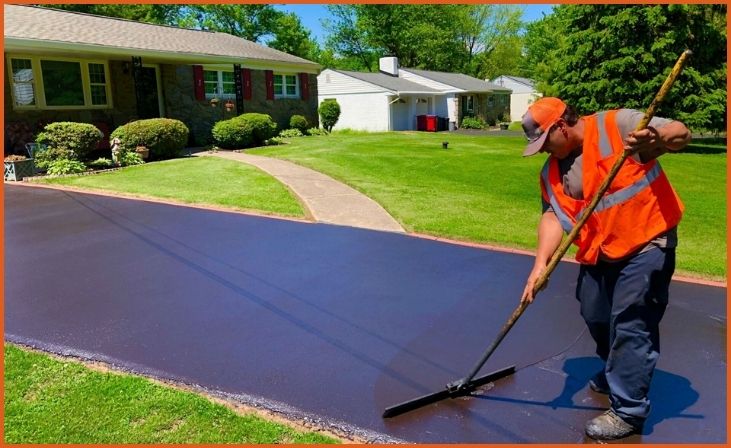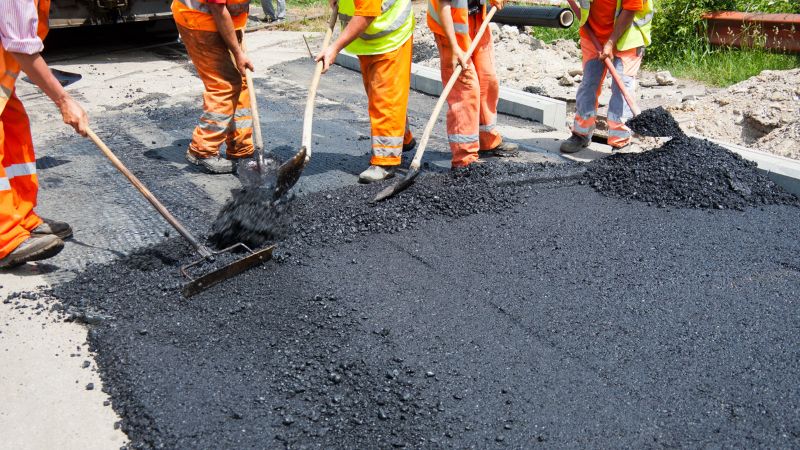It takes more than just applying an asphalt layer to create a smooth, long-lasting asphalt surface. Proper techniques and maintenance are crucial to ensure your pavement lasts and performs well over time. From choosing the right materials to understanding weather impacts, several factors contribute to the quality of asphalt pavements. This guide’ll delve into nine essential tips to help you achieve top-notch asphalt pavements. Whether you’re a contractor or a homeowner, these tips will provide valuable insights into creating pavements that stand up to traffic, weather, and wear. Discover how to enhance the longevity and appearance of your asphalt surfaces with our expert advice.
9 Tips For Quality Asphalt Pavements
Creating and maintaining high-quality asphalt pavements requires a combination of proper planning, material selection, and ongoing maintenance. These nine professional suggestions can help you make sure your asphalt pavements are long-lasting, strong, and aesthetically pleasing.
1. Choose the Right Asphalt Mix

Selecting the appropriate asphalt mix is crucial for achieving high-quality pavements. Hot mix asphalt (HMA), cold mix asphalt, and warm mix asphalt are among the several varieties of asphalt mixes that are available. Each type has its own advantages depending on the application. For heavy traffic areas, HMA is often preferred due to its strength and durability. Cold mix asphalt, on the other hand, is suitable for patching and repairs. It’s essential to choose a mix that matches the specific requirements of your pavement, such as traffic load, climate, and intended use. Working with a reputable supplier who can provide high-quality materials and expert advice is key to ensuring the right mix for your project.
Read Also: Make Your Asphalt Driveway Last Longer
2. Proper Preparation of the Subgrade
The subgrade, or the soil layer beneath the asphalt, plays a critical role in the longevity and quality of the pavement. Before laying the asphalt, it’s important to prepare the subgrade properly. This involves removing any vegetation, debris, and loose soil to create a stable foundation. The subgrade should be compacted to achieve a uniform density and to prevent future settling or shifting. Additionally, proper drainage should be installed to prevent water accumulation, which can lead to structural damage. A well-prepared subgrade ensures that the asphalt layer adheres properly and performs effectively under stress.
3. Ensure Correct Asphalt Thickness
Another important element that determines the quality of the pavement is the thickness of the asphalt layer. The required thickness depends on the type of traffic load and the subgrade conditions. Generally, a thicker asphalt layer provides better durability and resistance to cracking and deformation. For residential driveways, a thickness of 1.5 to 2 inches is usually sufficient, while commercial and high-traffic areas may require 3 to 4 inches. Proper compaction during installation is also essential to achieve the desired thickness and density. Consulting with a professional to determine the appropriate thickness for your specific needs can help ensure a long-lasting pavement.
4. Monitor Temperature During Installation

Temperature plays a significant role in the asphalt paving process. The mix should be at the proper temperature when applying and compacting asphalt. For hot mix asphalt, the ideal temperature is typically between 275°F and 325°F. If the asphalt is too cold, it may not compact properly, leading to a weaker surface. Conversely, if it’s too hot, it can become too fluid and lose its structural integrity. It’s essential to monitor the temperature throughout the installation process and adjust as needed to maintain the quality of the pavement. Using temperature-controlled equipment and working within the recommended temperature range will help ensure a successful installation.
5. Use Proper Compaction Techniques
Compaction is a crucial step in the asphalt paving process that affects the final quality of the pavement. Achieving the required density and strength of the asphalt layer is facilitated by proper compaction. The use of appropriate equipment, such as vibratory rollers, is essential for effective compaction. The asphalt should be compacted while it’s still hot to achieve the best results. Compaction should be performed in multiple passes to ensure uniform density across the entire surface. It’s important to avoid over-compaction, which can lead to an overly dense surface that may crack or become brittle. Proper compaction techniques ensure that the pavement is durable and resilient.
6. Plan for Adequate Drainage
Effective drainage is vital for maintaining the quality and longevity of asphalt pavements. Water can cause significant damage to asphalt surfaces by infiltrating cracks and weakening the subgrade. To prevent this, ensure that proper drainage systems are in place before paving. This includes installing curb and gutter systems, drainage pipes, and ensuring proper grading to direct water away from the pavement. Regular maintenance of drainage systems is also important to prevent blockages and ensure that water flows correctly. By planning and implementing effective drainage solutions, you can protect your asphalt pavement from water-related damage and extend its lifespan.
7. Sealcoat Regularly

An effective preventative maintenance technique for shielding asphalt pavements from the elements is sealcoating. Using a sealcoat helps protect the pavement from water intrusion, oxidation, and UV radiation. It also provides a fresh, black appearance and can improve the overall aesthetics of the surface. Sealcoating should be done approximately every 2 to 3 years, depending on traffic conditions and weather exposure. It’s important to choose a high-quality sealcoat product and apply it according to manufacturer recommendations. Properly sealing your asphalt pavement can help prevent cracks, extend its lifespan, and maintain its visual appeal.
8. Address Cracks and Potholes Promptly
Regular inspections of your asphalt pavement are essential to identify and address cracks and potholes before they worsen. If small cracks are ignored, they can soon grow into more serious problems that require more involved and expensive repairs. Filling cracks and repairing potholes promptly helps prevent water infiltration and further damage. Use appropriate crack fillers and patching materials to ensure a durable repair. For significant damage, consider consulting a professional to assess and address the issue effectively. Timely maintenance and repair will help preserve the quality and functionality of your asphalt pavement.
Read Also: The Right Asphalt Paving Contractor
9. Perform Routine Maintenance
Routine maintenance is crucial for keeping asphalt pavements in good condition and extending their lifespan. This covers routine upkeep such as cleaning, inspections, and small repairs. Keeping the pavement clean from debris, leaves, and other contaminants helps prevent surface damage and deterioration. Inspections regularly let you see possible problems early and take quick action. Additionally, maintaining proper markings and signage can enhance safety and prevent wear from vehicle traffic. Implementing a routine maintenance schedule and addressing issues as they arise will help ensure that your asphalt pavement remains in excellent condition for years to come.
Conclusion
Implementing these nine tips will help you achieve high-quality asphalt pavements that are both durable and aesthetically pleasing. From proper preparation and material selection to routine maintenance, each step plays a vital role in ensuring your pavement stands the test of time. By following these expert recommendations, you can enjoy a long-lasting, well-maintained asphalt surface that meets your needs and expectations. Take the time to apply these tips, and you’ll be rewarded with a pavement that performs exceptionally well and looks great for years to come.
FAQs
What materials are best for high-quality asphalt pavements?
Use high-grade asphalt mix with appropriate additives to improve durability and performance.
How often should asphalt pavements be maintained?
Regular maintenance every 1-2 years is recommended, including sealing and repairs to prevent damage.



